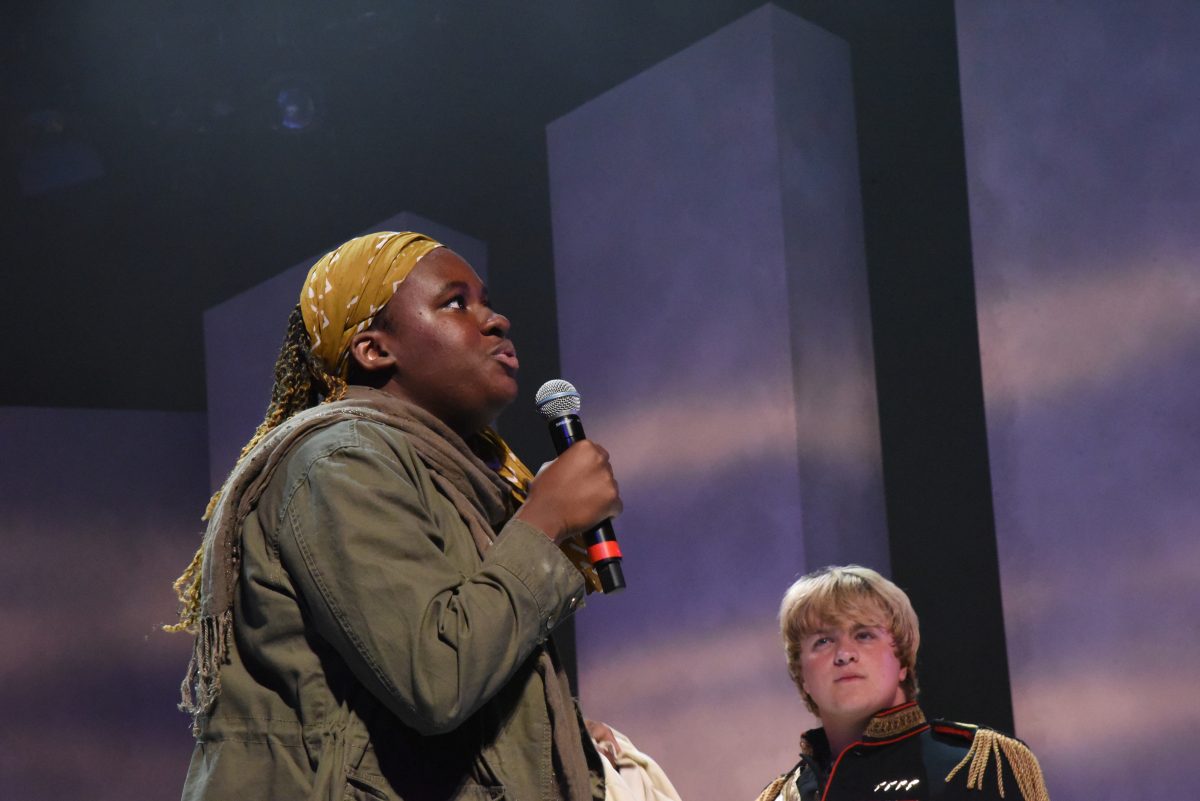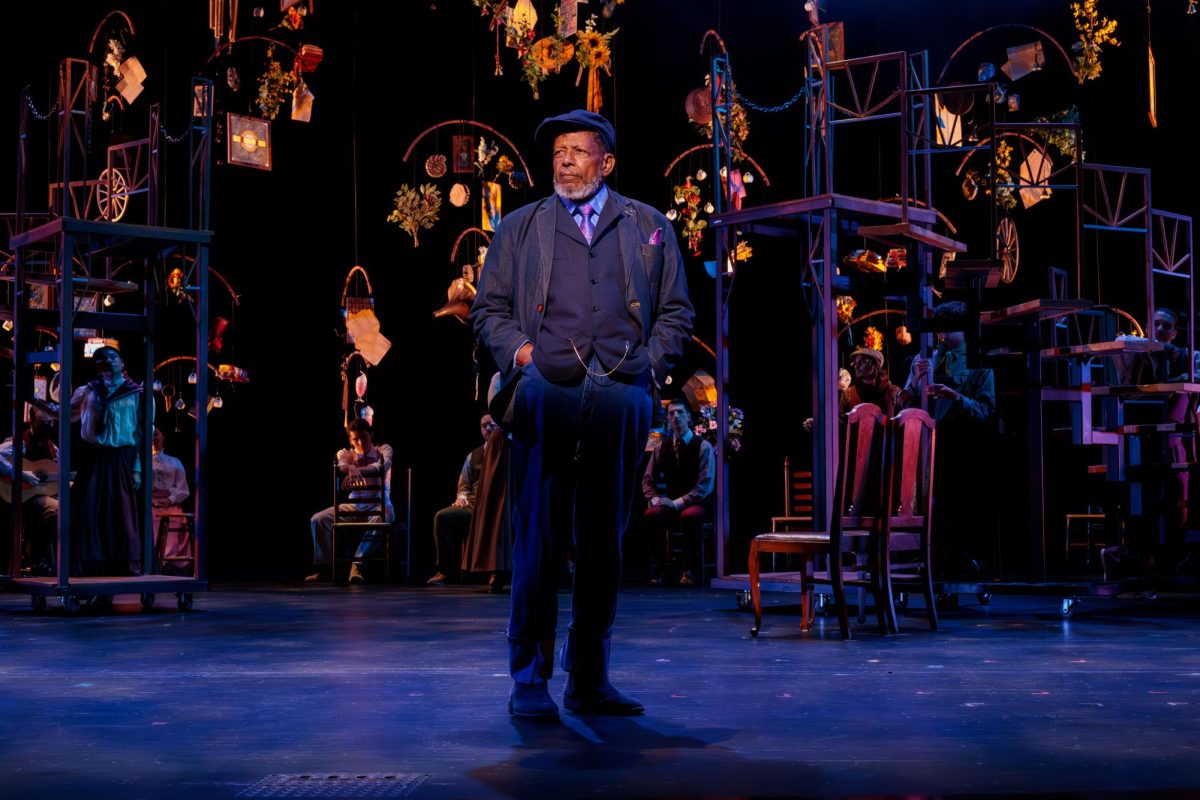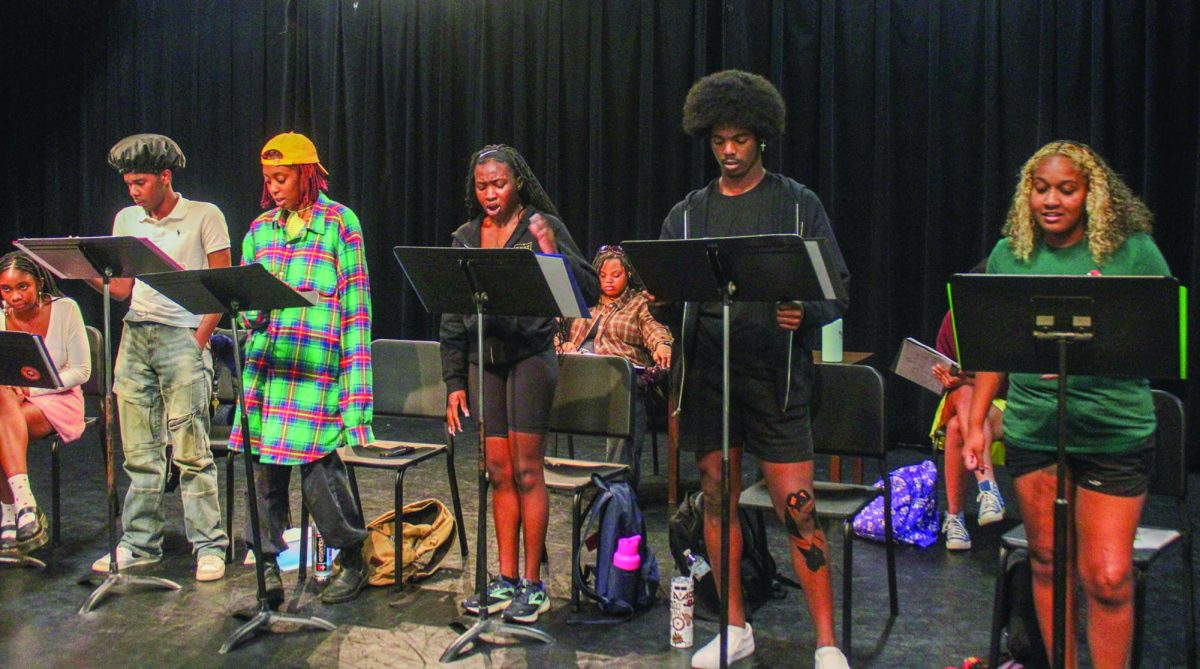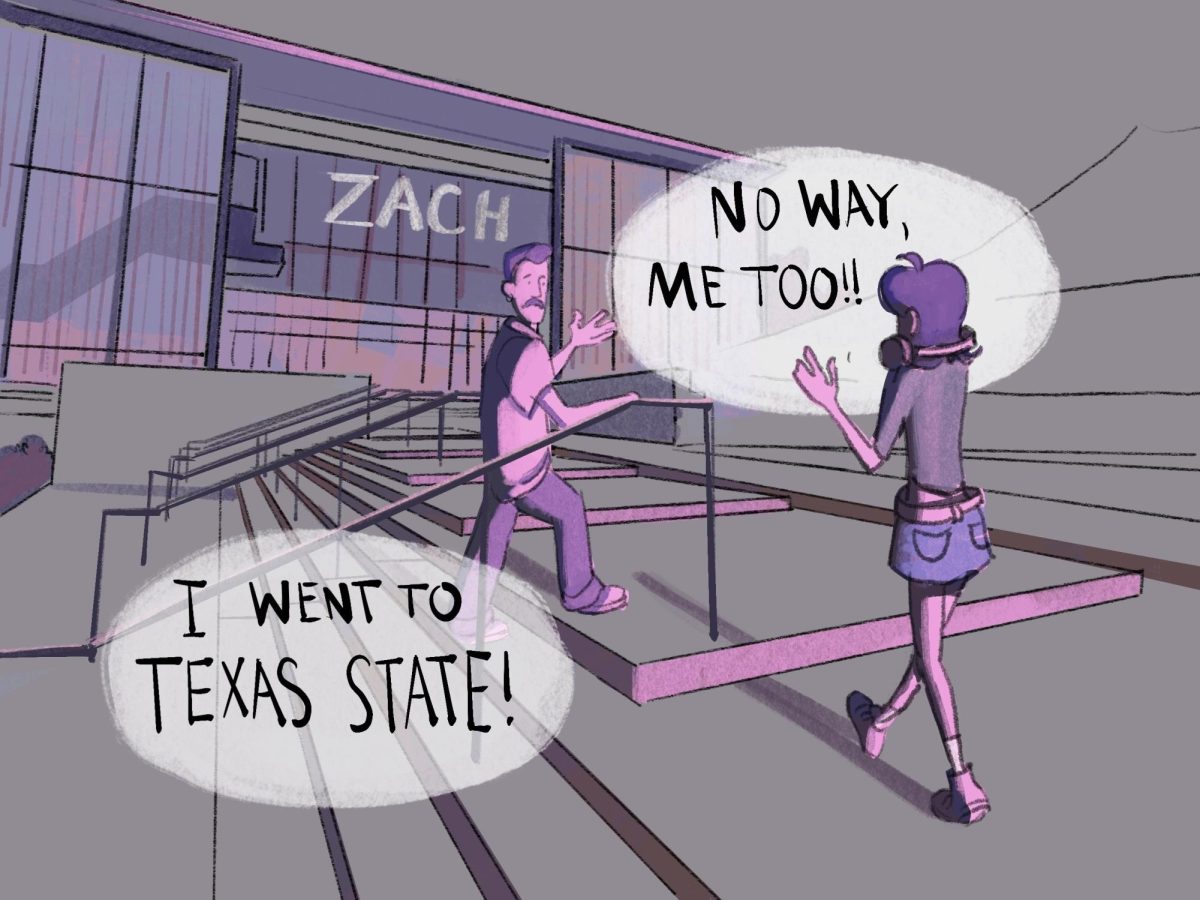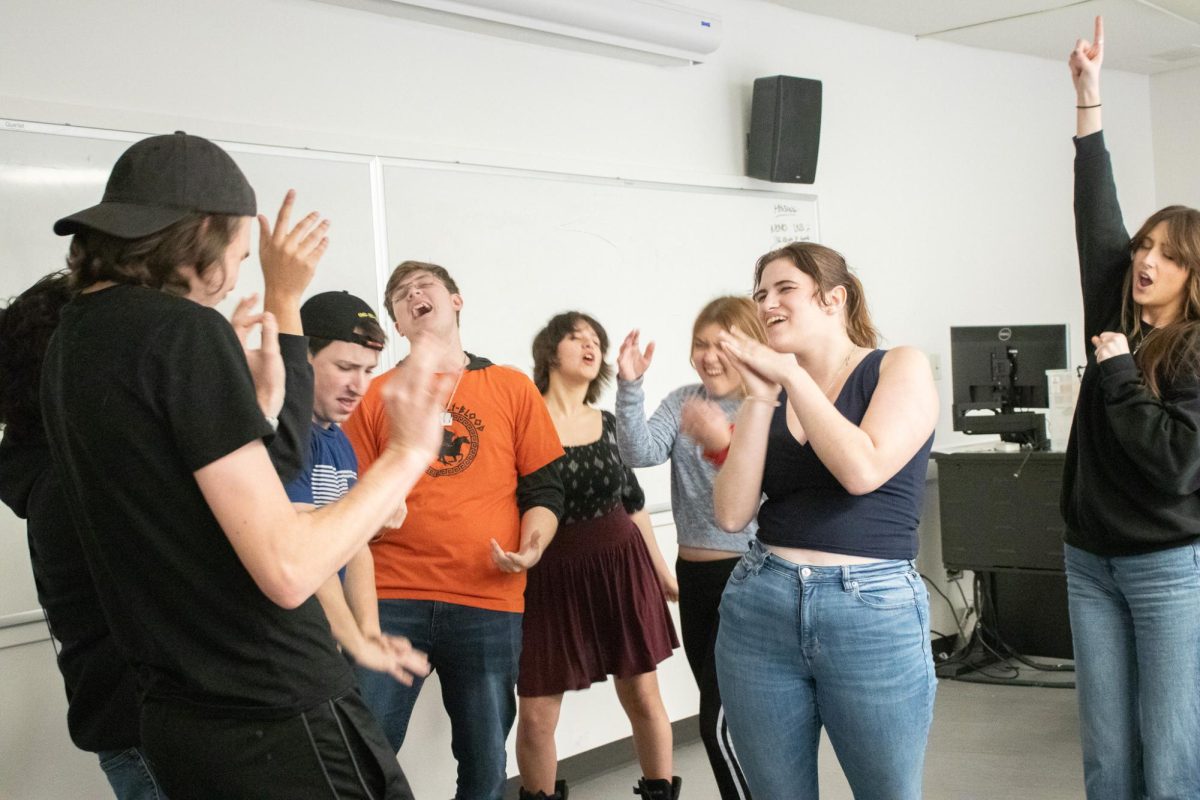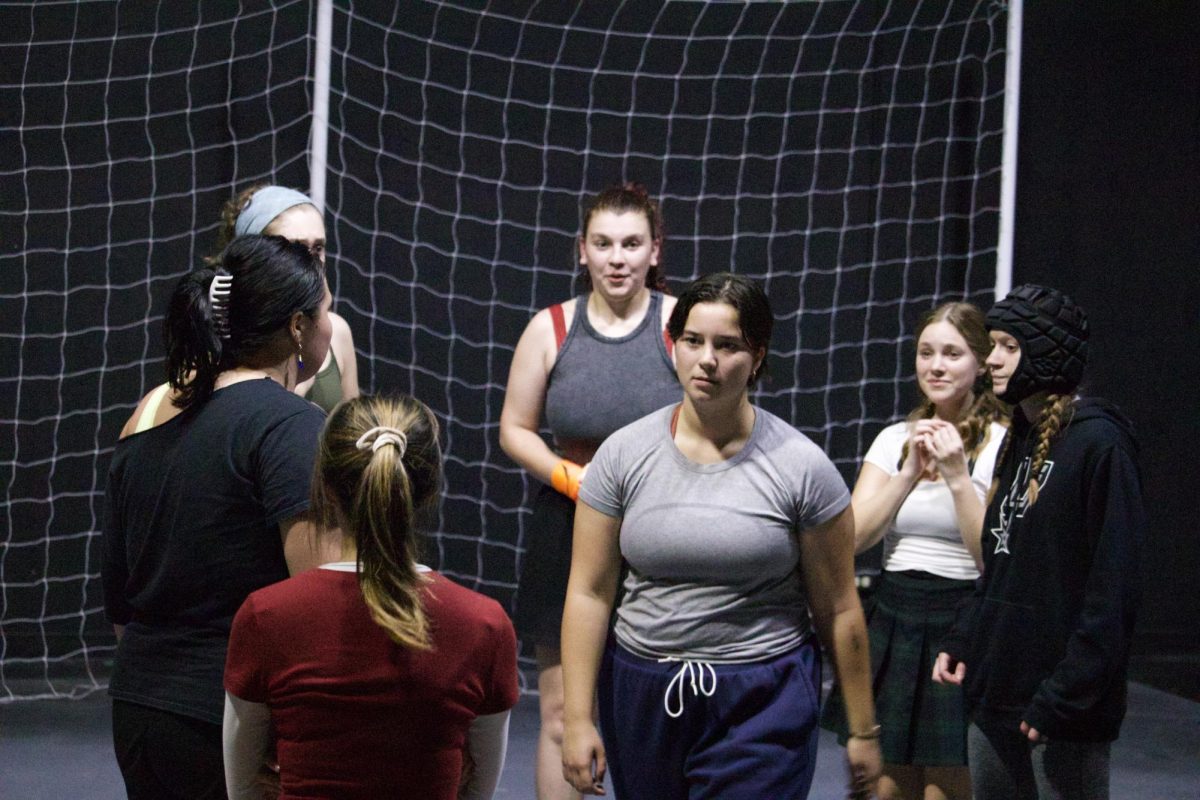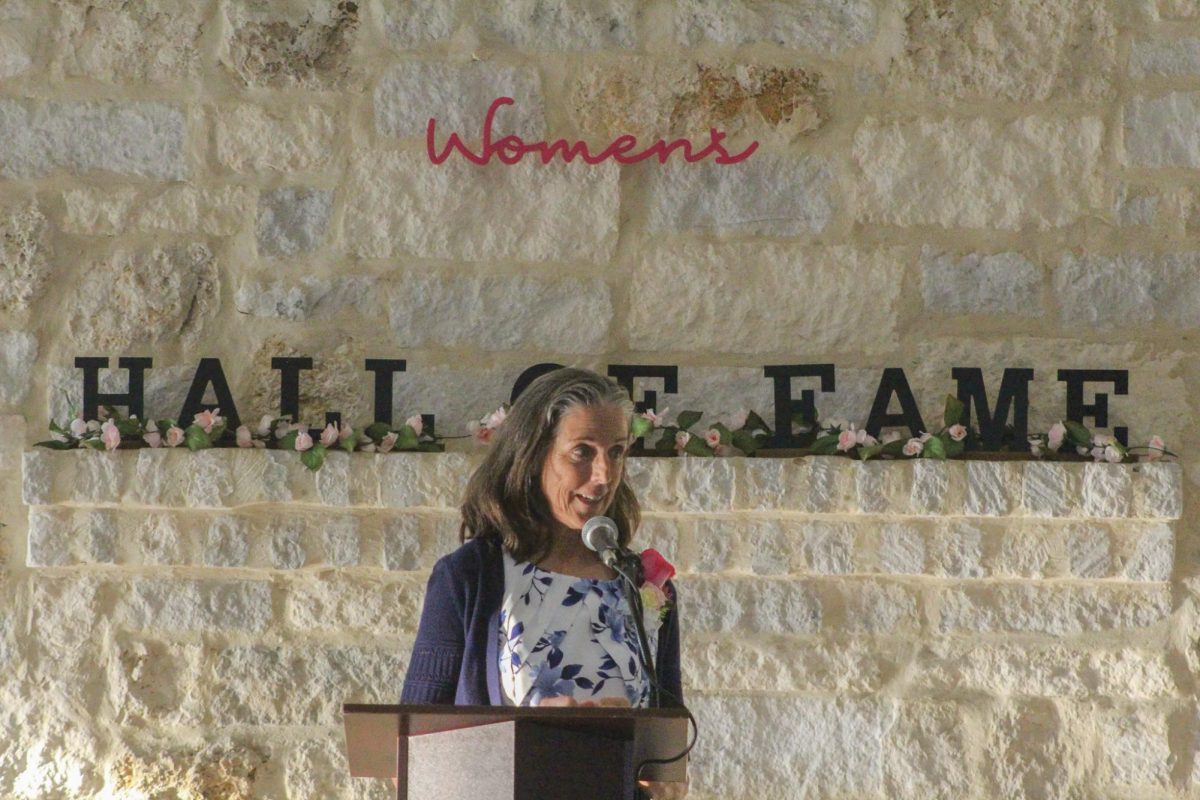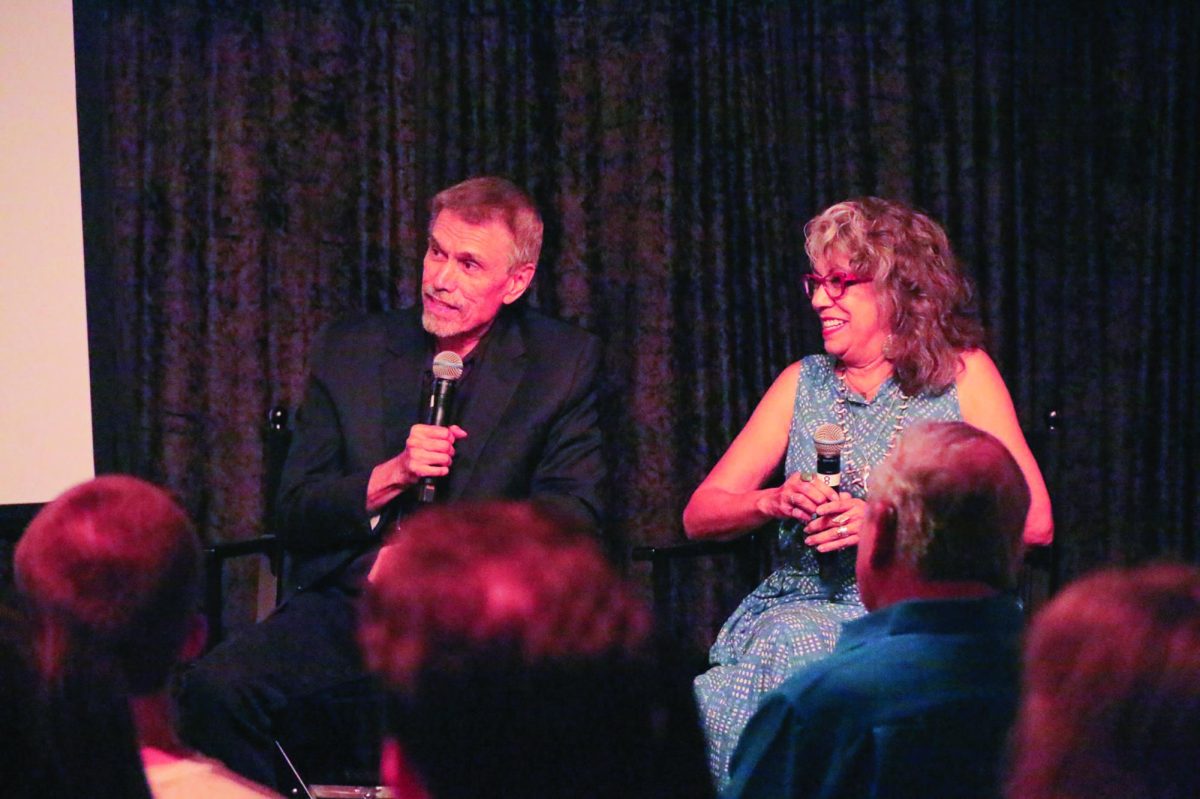The house lights dim inside Patti Strickel Harrison Theatre as the dark ethereal music fades into the start of the Texas State Department of Theatre and Dance’s production of “Antigone.” For the next hour and 15 minutes, the audience will experience a production that consists of a claustrophobic and bleak retelling of the classic Greek tragedy.
The Department of Theatre and Dance presented its production of Bertolt Brecht’s “Antigone” from Sep. 7 to Oct. 2. Director Jess Hawthorne Fiene, a graduate student and third-year directing candidate, used an experimental approach to directing to give the play a more modern feel and effectively immerse the audience into the themes and conflict of the story.
“[The script is] like this heightened language, but what we’ve tried to do is make it feel like we’re just in 2022, and make sure that the things that the actors are saying feel just as relevant and just as human and resonate with whoever is sitting right out here as much as possible,” Fiene said.
Brecht’s version of “Antigone” is a retelling of the Greek tragedy originally written by Sophocles. The Brecht version was written shortly after World War II and the play shows the fall of the City of Thebes due to mistakes made by the king of the city, Creon. Brecht based Creon’s character on Hitler’s rule of Germany, portraying him as a cruel and tyrannical leader. Antigone is a young woman who stands up against the rule of Creon.
“A huge thing of why I wanted to do this play, even though it is so dark, is that we have to examine human failure and we have to be okay with human failure in order to accept it and learn from it,” Fiene said. “Because at the end of the day, these characters, they don’t realize what they’ve done until it’s too late.”
To add energy to the show, Fiene recruited drummer David Collis to make a live soundscape for the show. The drums were an early addition to the production. Fiene and Collis started planning the drums last semester and shared playlists to find inspiration.
During the show, Collis performed on stage where the actors periodically interacted with him and his drum set. Collis drew inspiration from experimental bands like This Heat and Sounds of Burma to work with Fiene to craft the soundscape of the show.
Using his laptop, Collis altered the sounds of his drum set to give dark and at times unsettling texture beneath the actors. Only a couple of standard drum beats were played throughout the show as Collis prefers to use loops of sound and reverberate the actors’ voices back to them.
“Environmentally, there’s a lot of aspects involving the actors where they’re kind of losing their minds and [in] this drift in reality,” Collis said. “So it’s not so much trying to make the nightmare hellscape but more so to feed off the distortion of reality, as what I am creating sonically is a distortion of an acoustic drum set.”
In a party scene, Creon repeatedly hits a piñata and Collis synchronized the hits of his drums with that of Creon’s baseball bat, selling the illusion that Creon was making the noise.
“When I found out I got the roll. I was like, ‘okay, I’m doing this really dramatic, classical text,’ and then we have drums in it. We have a party on stage, we have like, all of these things that are just allowing us to have a little bit more fun.” Kaleb Quinn, a theatre junior who played Creon, said. “It kind of makes it a little bit more visceral. And in your body, it feels very punk rock and almost like throwing a concert every night. And it really gives it that kind of political, rebellious undertone.”
Sydney Cooper, a theatre junior who plays Antigone, believes that Collis’ drumming set her and the audience into the world of the story. She hopes the music made the audience feel the emotional impact of the show in a visceral way.
The show intentionally brought the audience into the performance of the play. Several times throughout, the actors delivered lines on the edge of the stage, making the audience feel closer to the performance. Actors broke the fourth wall several times during the show when they performed in the aisles of the theater. These decisions made it impossible for the audience to look away from the chaos on the stage.
“I think with the way we’ve devised this piece, it really brings them [the audience] into it as well,” Cooper said. “There are a lot of moments where we’re talking directly to the audience, and there’s so much eye contact made, like right off the bat from the beginning of the show, and all the way to the end.”
Cooper sees Antigone as an activist. In the play, she stands up to a tyrannical leader when no one else dares to get in his way. Antigone puts her life on the line just for the ability to be able to do the moral thing.
Cooper is inspired by Antigone as a character and sees her as a beacon of hope that cuts through the bleak nature of the rest of the play.
“[Antigone] is a leader but at her core, she’s still a kid,” Cooper said. “Then the fun part is marrying the world of her vulnerability as a leader, but also her fear of just being a kid who doesn’t want the city that she loves to come to ruin. She’s an activist to me. She’s someone who stands up for what she wants.”
Cooper took inspiration for the role of Antigone from current-day activism. She is inspired by slam poets who can use their bodies as vessels for the truth and she also finds inspiration in the March for Our Lives protests that took place in the summer of 2020.
To Quinn, the story of Antigone is important to tell to society. History will always repeat itself and the story will be relevant despite it being written so long ago. Quinn believes that the story reminds us that kings and rulers are still just humans and that they need to work to be able to help other humans.
“This is a really dark story, but similar things have been happening,” Quinn said. “I feel like they’re young girls who stick up to the government time and time again. There have been stories like Antigone and there will always be Antigonies, and there will always be Creons.”
Categories:
Department of Theatre and Dance modernizes Greek tragedy in ‘Antigone’
Ben Middleton, Life and Arts Contributor
October 4, 2022
Theatre juniors Sydney Cooper (left) and Kaleb Quinn rehearse in dress rehearsal for the of Antigone, Monday Sept. 26, 2022, at Patti Strickel Harrison Theatre.
0
Donate to The University Star
Your donation will support the student journalists of Texas State University. Your contribution will allow us to purchase equipment and cover our annual website hosting costs.
More to Discover


